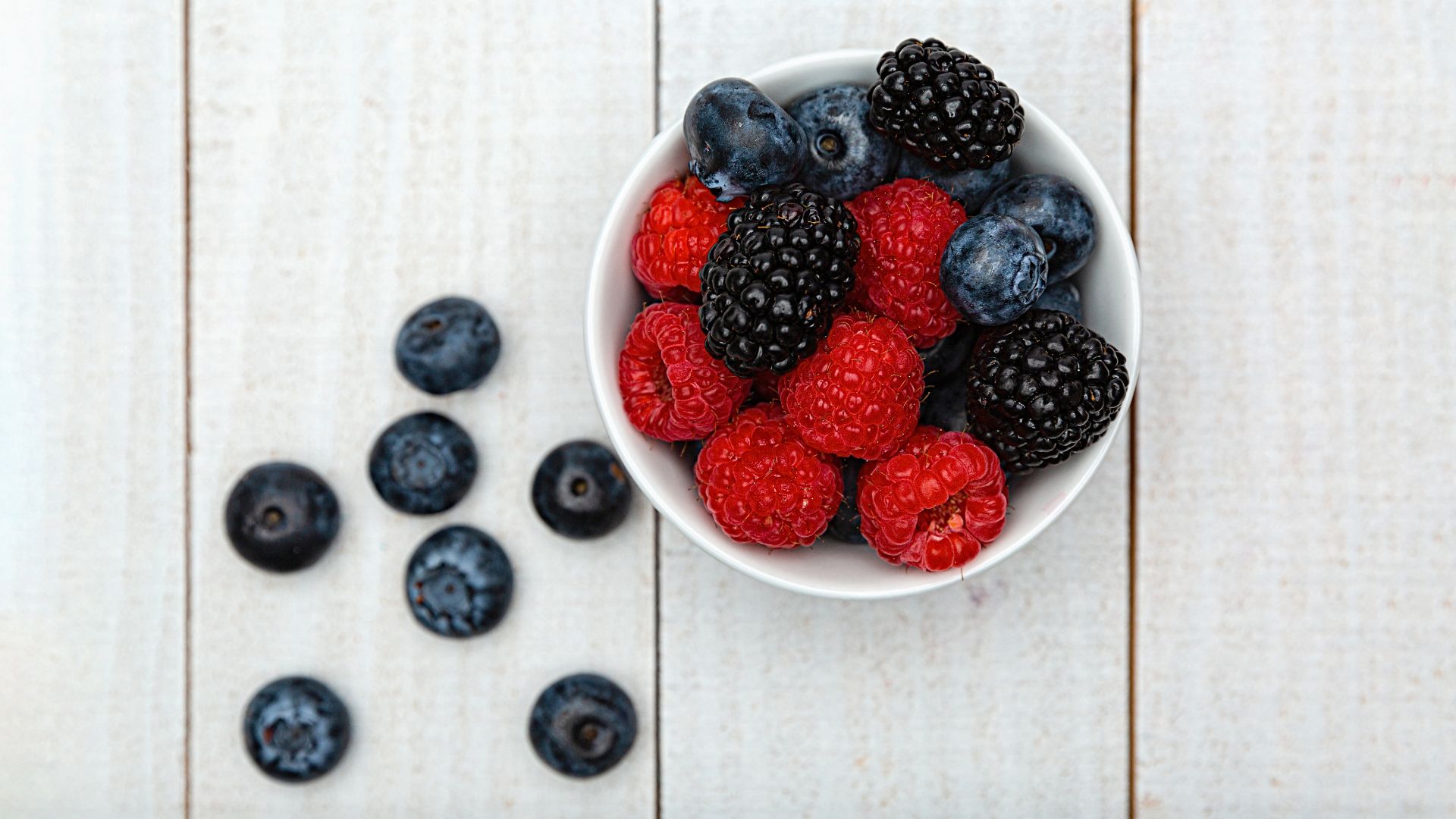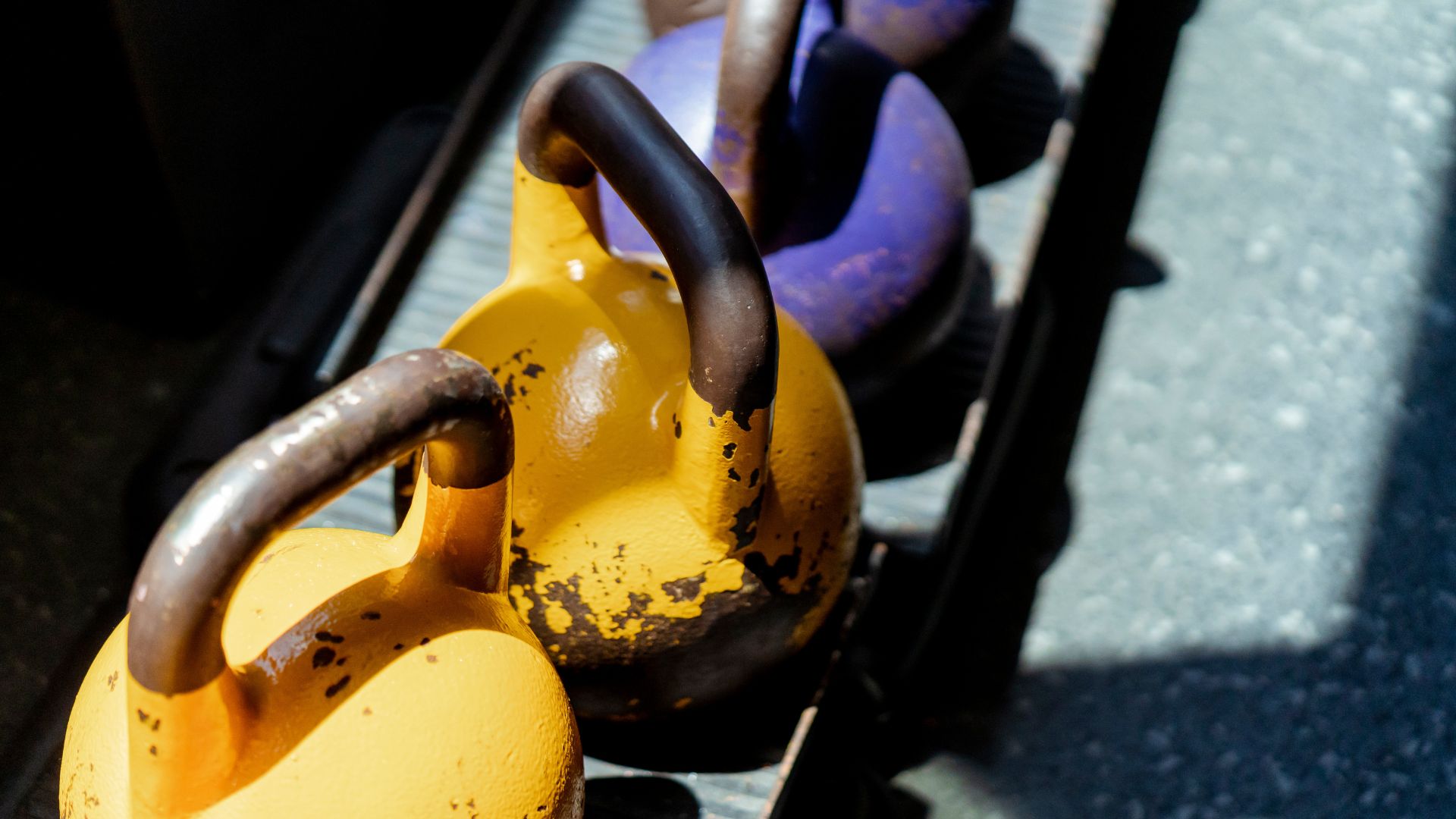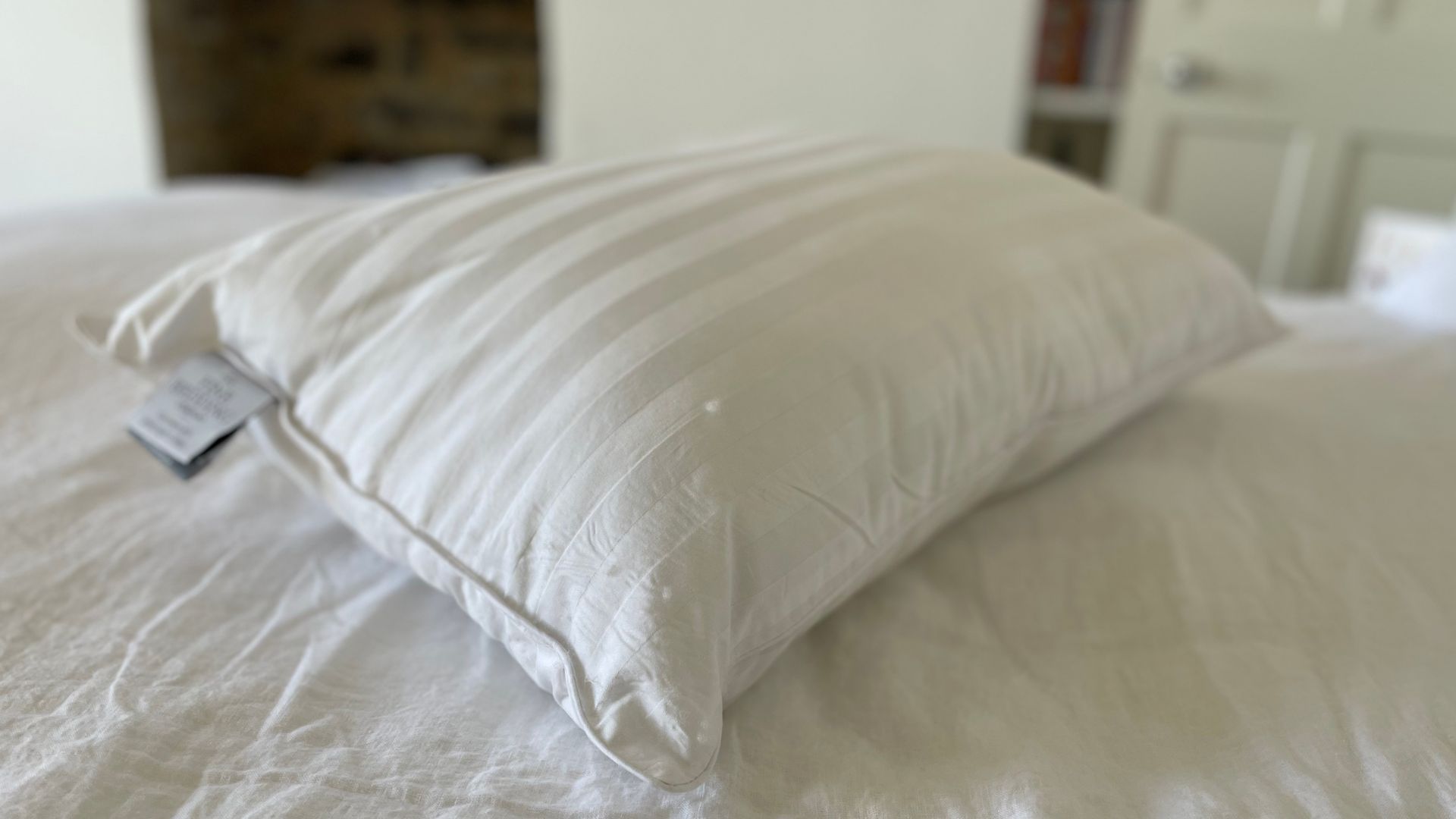What is PCOS belly fat? Experts explain what causes it and how to reduce it
Tackling PCOS belly fat is no mean feat, so woman&home asked the experts about its root causes and how to address the common issue


Polycystic ovarian syndrome (PCOS) brings with it many physical symptoms, including a 'PCOS belly fat.' Though not all sufferers of the hormonal disorder experience it, weight gain around your abdomen and waist can be an unpleasant side effect for many, and it can lead to other illnesses.
Keeping an eye on your waist measurement is traditionally associated with societal pressures of looking a certain way. For those suffering a hormonal balance like PCOS, however, increased abdominal fat can be a sign that your hormones are out of balance. It may also indicate that you're storing a high level of visceral body fat, which is also known as 'active body fat.'
You don't need to have PCOS to wonder how to lose belly fat, or to be concerned about visceral fat, which is the body fat that is stored within the abdominal cavity. According to diabetes.co.uk, having visceral fat is risky in itself because it's stored around important internal organs, including the liver, pancreas, and intestines. It's referred to as 'active' because this type of fat plays a "distinctive and potentially dangerous role affecting how our hormones function."
It's important to note that there's no way to target fat loss in one particular part of your body, so if you're working out but not losing weight in this area, that could be why. That being said, by making lifestyle changes and adjustments to diet and fitness, it's possible to improve symptoms of the hormonal disorder and lose weight overall, which may help combat belly fat caused by PCOS.
What is polycystic ovarian syndrome (PCOS)?
Polycystic ovarian syndrome (PCOS for short) is a common condition that affects how the ovaries work, according to the NHS. The three main indications that someone has it are irregular periods, excess androgen ('male' hormones), and polycystic ovaries. There are several health impacts of the condition with the most common being irregular menstrual periods, infertility, acne, oily skin, thinning hair, and excess hair growth in areas like the face and chest.
Gynecologist Dr Nitu Bajekal and nutritionist Rohini Bajekal, who co-wrote Living PCOS Free, tell woman&home that it's by no means a rare condition. It's the most common hormonal or endocrine disorder with reproductive, metabolic, and psychological consequences. It affects at least 10% of women and those of reproductive age. Shockingly, Dr. Nitu and Rohini proffer that up to 75% of those living with PCOS remain undiagnosed.
What causes PCOS belly fat?
PCOS belly occurs when hormone fluctuations cause havoc in your system and affect your metabolism, encouraging excess weight gain around your middle, particularly the lower abdomen. Dr Shahzadi Harper, a former GP, author, and leading menopause expert says.
Sign up for the woman&home newsletter
Sign up to our free daily email for the latest royal and entertainment news, interesting opinion, expert advice on styling and beauty trends, and no-nonsense guides to the health and wellness questions you want answered.
"The hormone imbalance is caused by the abundance of androgens in the ovaries which can affect women in their fertility years," she says, adding that it also causes insulin resistance, which is medically thought to be the root cause of the syndrome. When insulin doesn’t perform as it should, blood sugar levels continue to rise despite increased insulin levels, and type 2 diabetes can develop.
"Excess upper body fat deposition is associated with an increased risk of developing various health conditions," adds Ms Karolina Afors, consultant obstetrician and gynecologist at The Portland Hospital. Those with PCOS are also more likely to develop medical conditions such as high cholesterol, high blood pressure, sleep apnea, infertility, endometrial cancer, and heart disease.
How to get rid of PCOS belly fat
1. See your doctor
If you suspect you have PCOS, you should see your doctor to get a diagnosis. If you've already been diagnosed, it's important to keep an eye on your hormone levels and make an appointment if you have any concerns.
When it comes to managing symptoms of the condition medically, your doctor may suggest the hormonal pill or Metformin, which is often also used in the treatment of type 2 diabetes but is one of the leading medications for PCOS.
As with any ongoing health condition, it's vital to consult your doctor before making any drastic changes.

2. Eat a PCOS friendly diet
People with PCOS can experience a slower metabolism than normal, making it more difficult to control food cravings, explains Ms Afors, stressing the importance of monitoring your diet if you have the condition. "A diet that has a low glycemic index and plenty of anti-inflammatory foods has been linked with improved PCOS symptoms including minimizing weight gain," she says.
The glycaemic index (GI) is a rating system for foods containing carbohydrates. Per the NHS, "it shows how quickly each food affects your blood sugar (glucose) level when that food is eaten on its own."
"Highly processed carbohydrates and foods high in added sugars can worsen abdominal fat in people with PCOS," adds Melissa Groves Azzaro. Groves Azzaro, also known as The Hormone Dietician, has gained a huge social media following for her 'No-BS' hormone nutrition tips. "It's not possible to 'spot reduce' belly fat," she reminds us, "but an overall balanced way of eating that's high in protein and fiber, low in processed foods and added sugars, can help."
PCOS-friendly foods include:
- Unprocessed whole foods
- High-fiber foods
- Fatty fish, such as salmon, tuna, sardines, and mackerel
- Kale, spinach, and other dark, leafy greens
- Dark red fruits, including red grapes, blueberries, blackberries, and cherries
- Broccoli and cauliflower
- Dried beans, lentils, chickpeas, and other legumes
- Healthy fats, such as olive oil, as well as avocados and coconuts
- Nuts, including pine nuts, walnuts, almonds, and pistachios
- Dark chocolate in moderation
- Spices, such as turmeric
3. Partake in PCOS friendly fitness
Alongside diet, fitness is a surefire way to help improve PCOS symptoms and excess fat distribution. When it comes to hormone health and exercise, exercise and endocrinology specialist Dr Nicky Keay tells us variety is key. "Focusing exclusively on one type of exercise, in general, is not best for hormone health," she says. Instead, those dealing with PCOS should focus on strength training and some cardiovascular exercise, like LISS training.
She adds, however, "It's important to consider not only the type of exercise you do but also how regularly you do it and the intensity levels too."
Dr Sohère Roked, a GP and integrative medicine specialist agrees and adds that with exercise should come an equal amount of rest. "If you feel very tired after high-intensity exercise, take it down a notch," she suggests. "You could be creating more inflammation in your system and this makes it harder to lose weight."
Keeping that in mind, here are some examples of fitness that can help treat the symptoms of PCOS...
Best exercises for PCOS belly
HIIT training
Ms Afors says that HIIT workouts can help reduce weight gain by decreasing PCOS symptoms and reducing excess testosterone, therefore improving insulin resistance. This could be classes at your local studio, HIIT treadmill workouts, or a home workout based on intense cardio activity.
The support for HIIT to reduce PCOS symptoms is wide-ranging and supported by academic research in the field. For example, a study by the University of the West Indies indicates that short, sharp bursts of exercise can have a positive effect on our sensitivity to insulin. In fact, this is one of the best exercises for PCOS belly fat as the effects can last up to three days after the HIIT session, the study suggests.
However, it's important to listen to your body and not overexercise, as this is one of the biggest weight loss mistakes, Dr Keay explains. "HIIT can increase cortisol, which is not favorable in terms of maintaining and creating a particular body composition," she says.

Strength training
Through work with her clients, health coach and founder of PCOS Diva Amy Medling found that resistance training is a very effective option for managing symptoms. Especially, she explains, when it's combined with low-intensity cardio like walking for weight loss.
"The combination of weight lifting three days a week, plus walking, is the best way to decrease insulin resistance, avoid inflammation and elevated cortisol, which all help reduce PCOS belly fat," she explains.
This advice reflects research by the University of Western Sydney that found strength training can help with insulin resistance. In other words, incorporating a few sessions into your weekly workouts helps with burning fat as well as tackling PCOS symptoms.
Low-intensity cardio
Low-intensity steady-state cardio, or LISS training as it's more commonly known, is a great way to lose any fat mass that could be harming your health and exacerbating your PCOS symptoms further.
Training plans like the 12-3-30 workout, swap treadmill running for incline walking. In other words, they lower the intensity while also having numerous wonderful health benefits.
When it comes to planning your workouts, think walking, swimming, cycling, and light jogging, all of which have physical and mental benefits without raising your cortisol levels.
Mind and body exercises
If the mere thought of HIIT makes you break into a sweat, lifting heavy things seems like a drag, or choosing between traditional cardio like walking and running isn't up your street, all isn't lost. Treat yourself to one of the best yoga mats because mind-body exercises like yoga and pilates can also be helpful in not only burning calories, but also reducing stress, and therefore many of the stress-related PCOS symptoms.
If you or anybody you know is suffering from the symptoms of PCOS, it's important to remember that despite its challenges, it's a condition that can be treated. Reach out to your doctor for support and advice if needed.

Aoife is an Irish journalist and writer with a background in creative writing, comedy, and TV production.
Formerly woman&home's junior news editor and a contributing writer at Bustle, her words can be found in the Metro, Huffpost, Delicious, Imperica and EVOKE.
Her poetry features in the Queer Life, Queer Love anthology.
Outside of work you might bump into her at a garden center, charity shop, yoga studio, lifting heavy weights, or (most likely) supping/eating some sort of delicious drink/meal.
-
 We adore this spring weather, but a jumper is still essential - Sienna Miller's pastel pink knit is the dream
We adore this spring weather, but a jumper is still essential - Sienna Miller's pastel pink knit is the dreamIt's undeniable that spring has arrived, but sunny April weather can still come with a chill. We're taking inspiration from Sienna Miller's pastel pink knit.
By Charlie Elizabeth Culverhouse
-
 Is a silk pillow better than a silk pillowcase? I swapped mine out and saw some impressive results
Is a silk pillow better than a silk pillowcase? I swapped mine out and saw some impressive resultsI tested The Fine Bedding Company's Boutique Silk Pillow, which is designed for hair, skin, and cooler sleep. Is it worth switching out your silk pillowcase for?
By Laura Honey